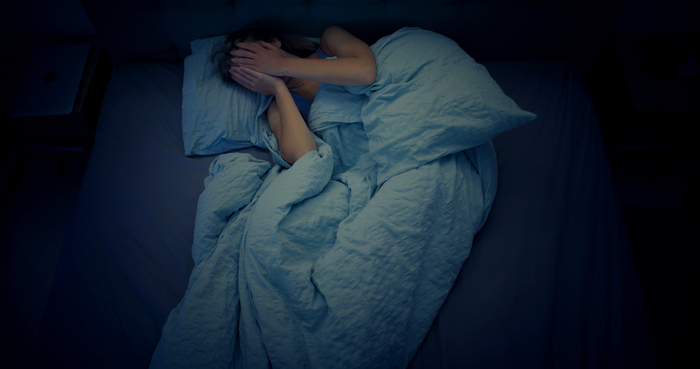Do not miss anything, stay "sharp", have the brain spinning, but recover to stay ready to pounce.
How, in these conditions, can you learn to (better) sleep?
Doctors have answers;
the researcher and specialist in English poetry Chloé Thomas (University of Angers) too!
In her original essay
Because the night
, (ed. Payot Rivages), she dissects our collective experience of lack of sleep, after having questioned the scientific archives, but also philosophy, works of art and children's stories.
All concerned
In a text published in 1934,
To watch or to sleep
, Francis Scott Fitzgerald recounts the appearance of chronic insomnia in his life.
Just thirty, the author of
Gatsby the Magnificent
thus explains that, “suddenly, our seven precious hours of sleep find themselves split in two […] and between the two appears a sinister interval whose duration does not stop growing”.
Sleep like a log, a dream often unattainable in adulthood?
“We are all fascinated by the sleep of a child, which would be absolute and peaceful, it is a fable to which we hold and we adhere”, underlines Chloé Thomas.
Finding sleep or losing it is a dreaded struggle, and all weapons are good to emerge victorious: ten million of us would consume sleeping pills and hypnotics.
The game is worth the candle, because sleep is recognized by all health authorities as a guarantee of good health, but also of good productivity for the day.
“The question of insomnia ultimately concerns everyone,
at some point in his life, adds the author.
But what is also interesting is that there is a risk of complacency.
We can console ourselves, even flatter ourselves, to be insomniac, because it can induce that we think too much, that we are more aware than someone who, stupidly, sleeps on both ears, "says -She.
Read alsoWhat happens in our body when we sleep less than six hours
sleep useful
In a series of studies collected in
The Great Transformation of Sleep
(Editions Amsterdam, 2001), the historian Roger Ekirch threw a stone into the pond by explaining that the continuous night did not exist in Antiquity, any more than in the middle Ages.
The first sleep was followed by an awakening phase of a few hours, then a second sleep until sunrise.
According to testimonies, during this period of watch, we discussed, we went for a walk, it was the hour of the muses, of the creative insomnia praised by Musset or Hugo.
According to the historian, chronobiology (the biological rhythms of sleep, moving from light to deep to paradoxical phases) was not yet stifled by the constraints of eight-hour days at the factory, store or school.
“My book is mainly about our relationship to sleep, continues Chloé Thomas.
We only really consider its value when we lose it.
Hence the obsession, in the capitalist world, for efficient sleep: we equip ourselves with connected watches to check that we sleep well.
It creates pressure, sets a standard that doesn't have to be."
Following it, we understand that sleep, or the lack thereof, is not a monolithic thing but a changing experience.
It thus calls upon the experience of Michel Siffre who, in 1962,
remained two months in the abyss of Scarasson, without temporal markers, to study its sleep cycles.
Without knowing it, he had gone into semi-hibernation.
Read alsoFive sleep habits to adopt to live longer, according to science
No ideal night
Chloé Thomas defeats another commonplace: we slept better before.
Before the blue light of the screens, before the apocalyptic announcements, the triple days and WhatsApp notifications.
“The thousand chasms of modern life prevent us from closing our eyes, but before, it was something else, she says: the night was troubled, we were hungry and cold, the insects were swarming, the cows were calving in the middle of the night, the beds of the inns and of the families were shared with several people.
This is why the paintings show the peasants sleeping with their mouths open in the great sun of harvest days.
In 2023, all that remains is to convince companies of the immense merits of the siesta...
In video, Nocturnal awakening: four tips to get back to sleep






/cloudfront-eu-central-1.images.arcpublishing.com/prisa/SJ2JE6YG7FA5VFLIRSO2YSLRUM.jpg)
